Understanding Skin Whitening Oils
Skin whitening oils have gained popularity as a method to address uneven skin tone, hyperpigmentation, and dark spots. They aim to lighten the skin by reducing melanin production, the pigment responsible for skin color. However, it’s crucial to understand how these oils work, their ingredients, and potential risks before incorporating them into your skincare routine. Choosing the right product is paramount for achieving desired results while minimizing adverse effects. This guide will walk you through everything you need to know to select the best skin whitening oil for your body, promoting a healthy and radiant complexion.
Ingredients to Look For
The effectiveness and safety of a skin whitening oil largely depend on its ingredients. Certain components are known for their skin-lightening properties and are generally considered safe when used appropriately. Always check the label of the product to make sure you choose the right ingredients. Consider your skin type and what it need.
Hydroquinone

Hydroquinone is a potent skin-lightening agent that works by inhibiting melanin production. It is often used to treat hyperpigmentation, melasma, and other forms of skin discoloration. However, it is a medication and should be used under the guidance of a dermatologist, as it can cause side effects like skin irritation, ochronosis (a blue-black discoloration of the skin), and increased sun sensitivity. Always use sun protection if hydroquinone is on your skin.
Kojic Acid
Kojic acid is a natural compound derived from fungi that is used to lighten skin and reduce the appearance of dark spots and uneven skin tone. It works by inhibiting the production of melanin and is generally considered safer than hydroquinone. Kojic acid is often found in skin whitening oils and creams, and it can be effective in improving skin tone. However, some individuals may experience mild irritation or sensitivity. It is important to introduce kojic acid products gradually and monitor your skin’s response.
Vitamin C
Vitamin C, or ascorbic acid, is a powerful antioxidant that can help brighten the skin, reduce hyperpigmentation, and protect against sun damage. It works by inhibiting melanin production and promoting collagen synthesis, which can improve skin elasticity and reduce the appearance of fine lines. Vitamin C is often included in skin whitening oils due to its versatility and benefits for overall skin health. Look for products with stable forms of Vitamin C, such as L-ascorbic acid or sodium ascorbyl phosphate.
Arbutin
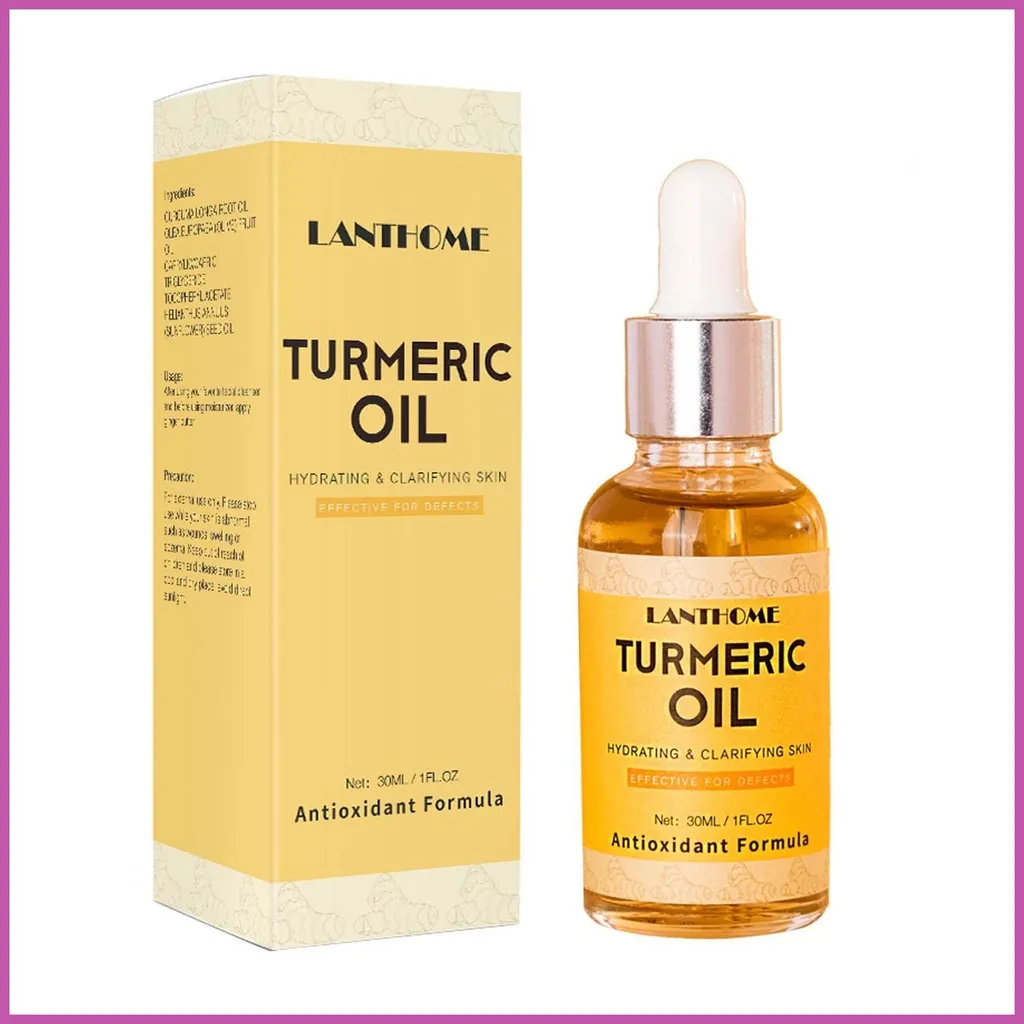
Arbutin is a natural derivative of hydroquinone found in plants like bearberry. It works by inhibiting tyrosinase, an enzyme that plays a key role in melanin production. It offers a gentler alternative to hydroquinone. Arbutin helps to lighten the skin and reduce dark spots with a lower risk of irritation. It is a popular ingredient in many skin whitening products because of its effectiveness and safety profile. It comes in two forms: alpha-arbutin (more effective) and beta-arbutin (less effective, but more common).
Ingredients to Avoid
Some ingredients should be avoided due to their potential health risks and ineffectiveness. Carefully review the ingredient list before purchasing a skin whitening oil.
Mercury
Mercury is a highly toxic heavy metal sometimes found in skin whitening products. It is extremely dangerous and can cause severe health problems, including kidney damage, neurological issues, and skin rashes. Always check product labels carefully and avoid any product that lists mercury or any of its compounds (e.g., mercurous chloride, mercuric iodide) among the ingredients. Purchasing products from reputable sources is essential to avoid exposure to this dangerous substance.
Corticosteroids

Corticosteroids, such as hydrocortisone or betamethasone, are sometimes added to skin whitening products to reduce inflammation and lighten skin. While they can provide quick results, long-term use can lead to several adverse effects, including skin thinning, acne, and increased susceptibility to infections. Using products containing corticosteroids without medical supervision is strongly discouraged. If a product makes your skin feel better too fast, check for this ingredient.
Choosing the Right Oil for Your Skin Type
Different skin types have different needs and sensitivities. What works well for one person may not work for another. It’s essential to choose a skin whitening oil that suits your specific skin type to achieve optimal results and minimize potential side effects. When selecting a product, consider your skin’s natural oil production, sensitivity, and any existing skin conditions.
Oily Skin
If you have oily skin, look for skin whitening oils that are lightweight, non-comedogenic (meaning they won’t clog pores), and contain ingredients like kojic acid or vitamin C, which can help control oil production. Avoid heavy, greasy formulas that can exacerbate oiliness and lead to breakouts. Choose products labeled as ‘oil-free’ or ’non-comedogenic’ to prevent clogged pores and acne. The ingredients should be easily absorbed to minimize the feeling of heaviness on the skin, look for products with tea tree oil for its natural antibacterial properties, which can help to keep the skin clear.
Dry Skin
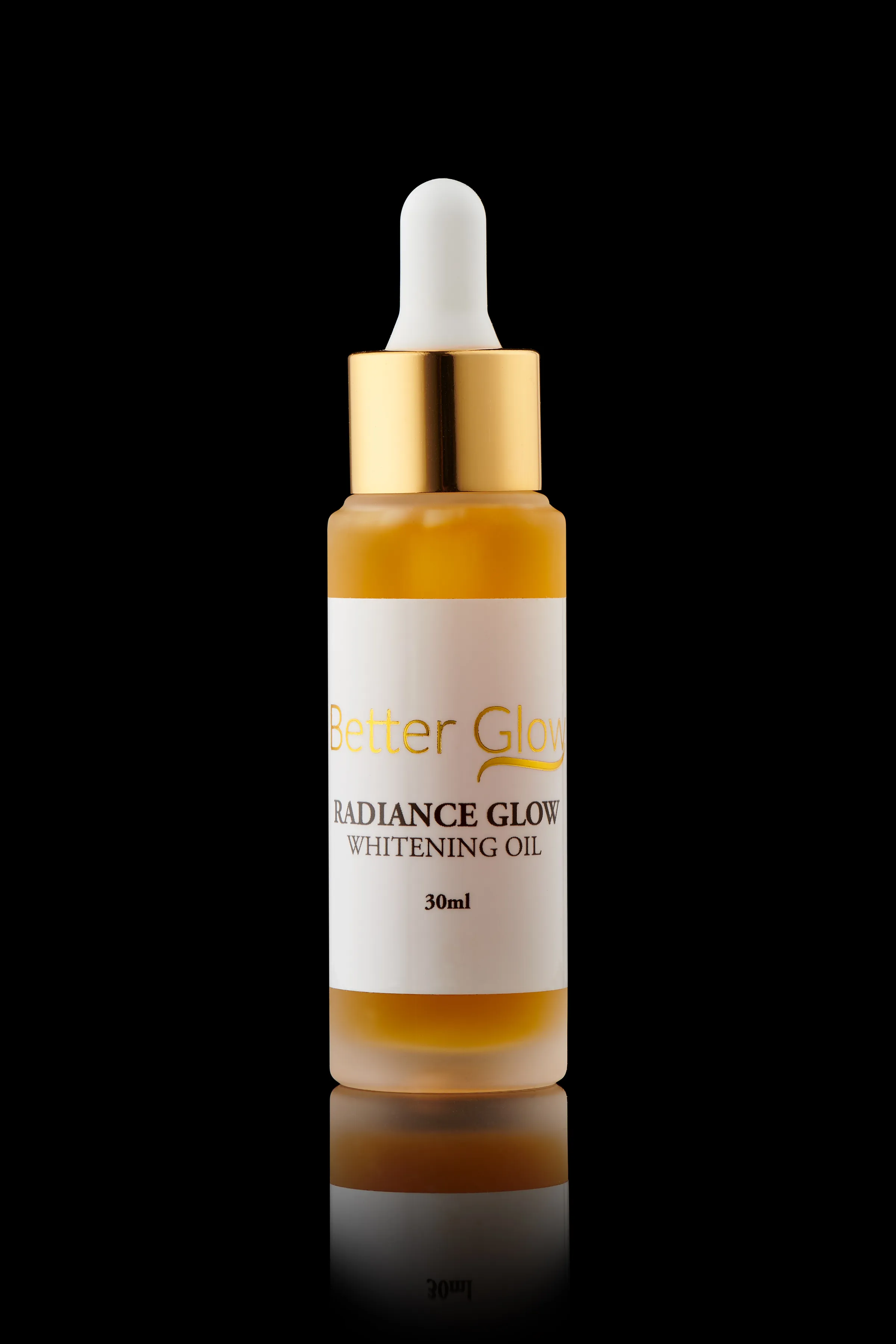
For dry skin, opt for skin whitening oils that are rich in emollients and humectants to provide hydration and lock in moisture. Ingredients like hyaluronic acid, glycerin, and natural oils (e.g., argan, jojoba, or rosehip oil) can help soothe and nourish dry skin. Look for products with a creamy or rich texture to provide maximum hydration. Avoid products with high concentrations of alcohol, which can further dry out the skin. Also, look for products that combine skin whitening agents with moisturizing ingredients.
Sensitive Skin
If you have sensitive skin, choose skin whitening oils that are fragrance-free, hypoallergenic, and contain gentle, soothing ingredients like aloe vera or chamomile. Always perform a patch test on a small area of skin before applying the oil to a larger area to check for any adverse reactions. Avoid products with harsh chemicals, strong fragrances, or high concentrations of active ingredients. Opt for products with fewer ingredients to minimize the risk of irritation. Always go slowly and pay close attention to how your skin feels after each application.
Normal Skin
If you have normal skin, you have more flexibility in choosing a skin whitening oil. You can generally experiment with different formulas and ingredients to find what works best for you. Pay attention to your skin’s needs and adjust your product selection accordingly. You can try a range of products to see what works best, but remember to always perform a patch test before regular use. Look for oils with multiple benefits, such as skin lightening, hydration, and antioxidant protection.
Application and Usage
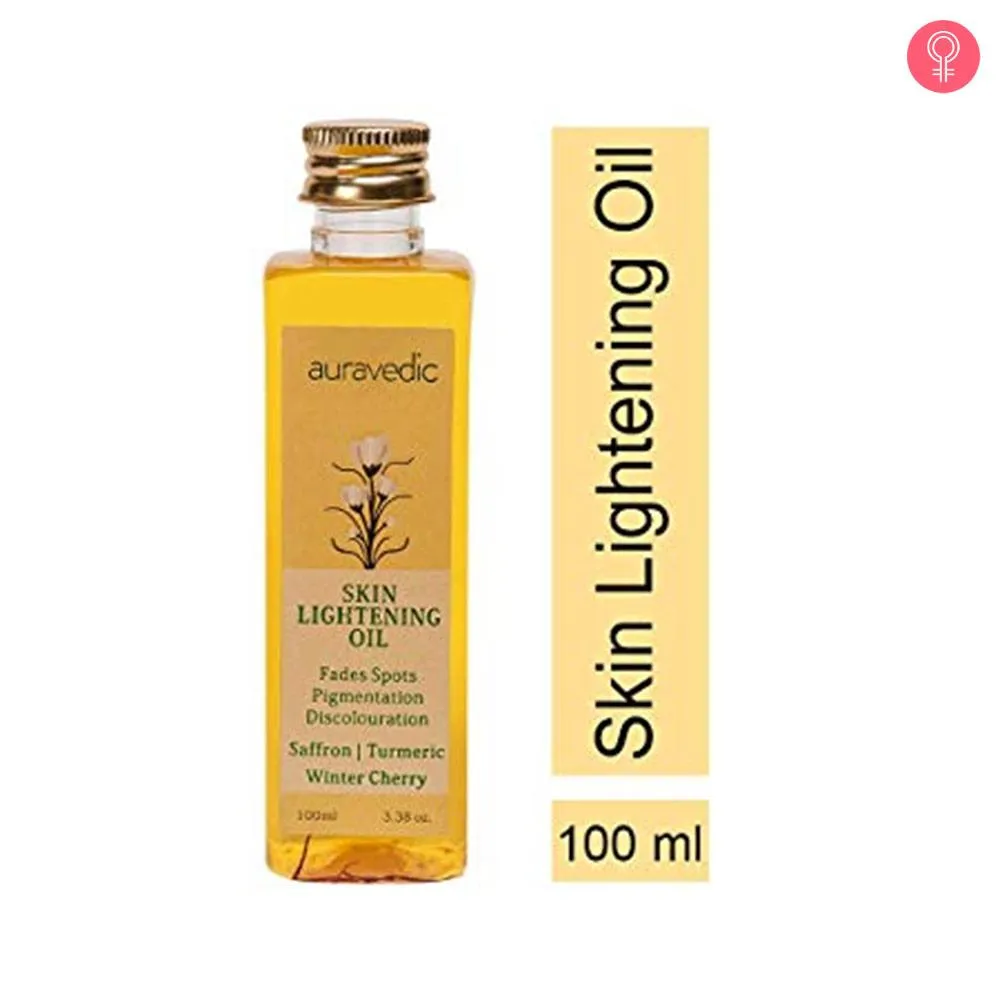
Proper application is crucial for achieving the desired results and minimizing potential side effects. Following the correct application techniques can help ensure the oil is effective and safe for your skin. Consistency is key, but always prioritize your skin’s health and well-being.
Patch Test
Before applying any skin whitening oil to a larger area of your body, always perform a patch test. Apply a small amount of the oil to a discreet area of skin, such as the inner forearm, and wait for 24-48 hours to check for any adverse reactions like redness, itching, or irritation. If you experience any of these symptoms, discontinue use. This step helps you determine if the product is suitable for your skin and prevents widespread reactions.
Application Techniques
Apply the skin whitening oil to clean, dry skin, gently massaging it in circular motions until it is fully absorbed. Focus on areas where you want to lighten the skin. Avoid applying the oil to broken skin or open wounds. Follow the product’s instructions for the best results. You should be patient with the product as results take time. Use gentle, upward motions to promote circulation and absorption. Always wash your hands thoroughly after application to prevent spreading the oil to other areas.
Frequency of Use
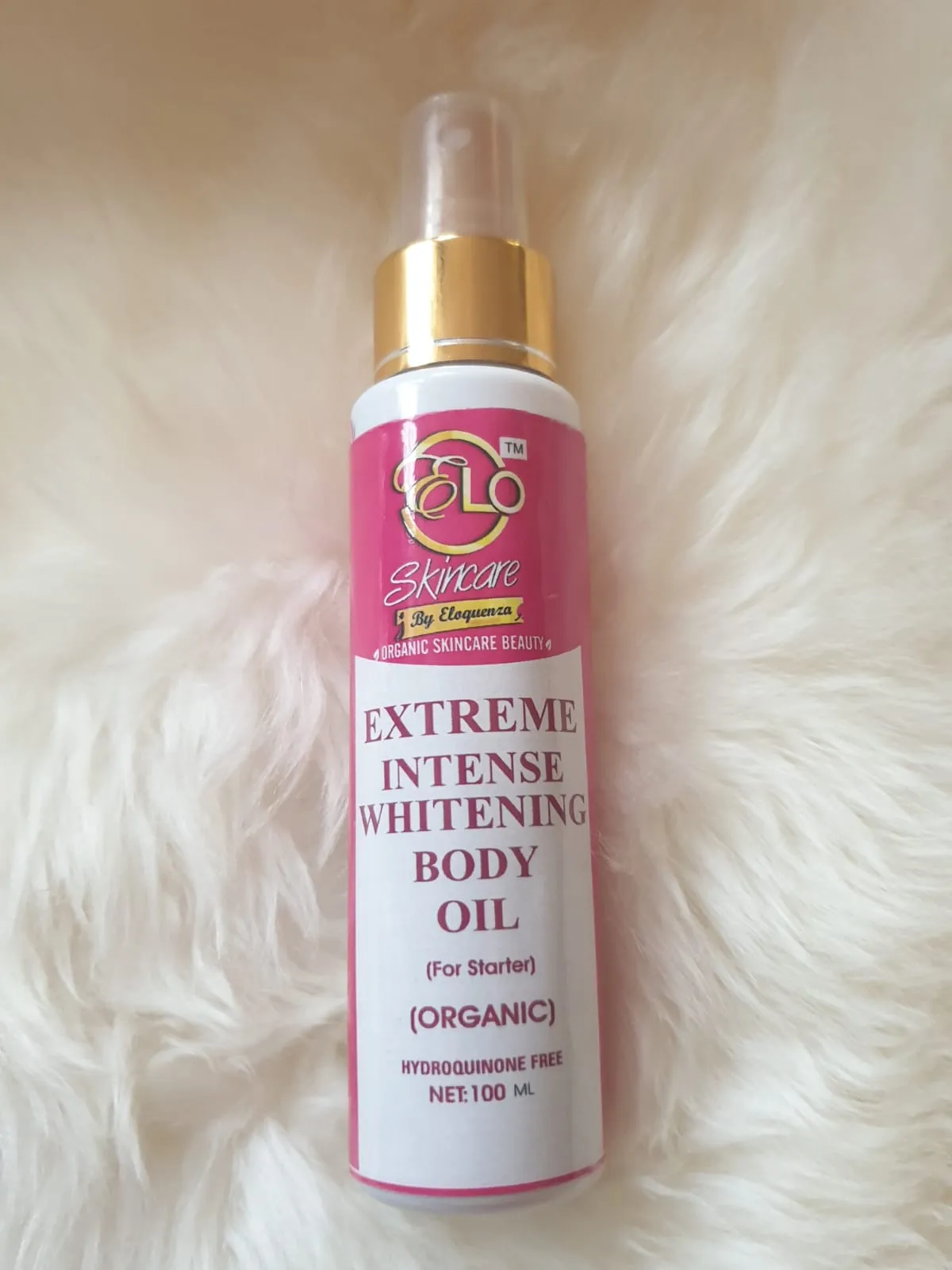
The frequency of use will depend on the specific product and your skin’s sensitivity. Start by using the oil once a day, preferably in the evening, and gradually increase the frequency as tolerated. Avoid overuse, as this can lead to skin irritation or other adverse effects. Pay attention to how your skin responds and adjust the frequency accordingly. If you experience any irritation, reduce the frequency of use or discontinue use altogether. Always follow the product’s directions to avoid over application.
Potential Risks and Side Effects
While skin whitening oils can be effective, it’s important to be aware of the potential risks and side effects. Understanding these can help you make informed decisions and take necessary precautions. Prioritizing your skin’s health is essential when using these products.
Skin Irritation
Skin irritation is a common side effect of skin whitening oils. This can manifest as redness, itching, dryness, or a burning sensation. If you experience any irritation, discontinue use immediately. If the irritation persists, consult a dermatologist. Using too much oil or using products with harsh ingredients can increase the risk of irritation. Using a moisturizer can help soothe irritated skin and maintain its barrier function.
Sun Sensitivity
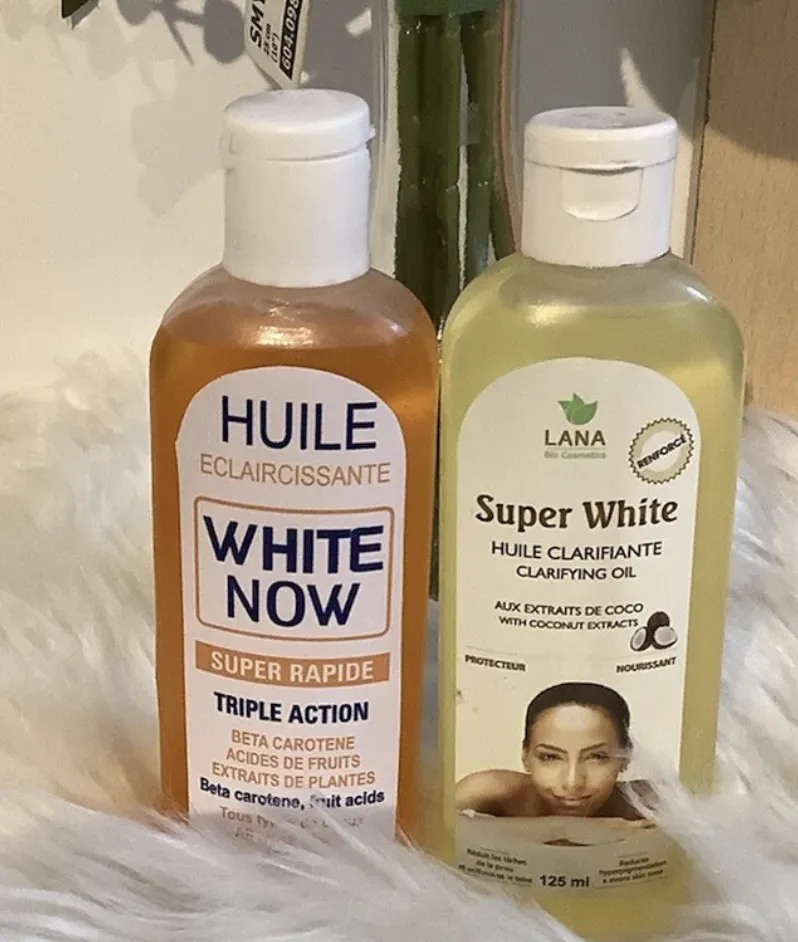
Many skin whitening oils can increase your skin’s sensitivity to the sun. This means that your skin is more likely to burn or get damaged from sun exposure. Always use a broad-spectrum sunscreen with a high SPF (30 or higher) when using skin whitening oils, and reapply it frequently throughout the day. Avoid prolonged sun exposure, especially during peak hours. Protect your skin with hats, protective clothing, and seek shade when possible. This will protect your skin and reduce the risk of sun damage and further pigmentation.
Long-Term Effects
The long-term effects of using skin whitening oils can vary. Some ingredients, like hydroquinone, can cause permanent skin damage with prolonged use. Other ingredients may lead to thinning of the skin or uneven pigmentation. Continuous monitoring and regular check-ups with a dermatologist are recommended if you are using these products. Always use products that are safe and backed by scientific evidence.
Top Skin Whitening Oil Brands
Several brands offer skin whitening oils. When choosing a brand, consider the ingredients, reviews, and the brand’s reputation. This section will highlight some of the most popular and reputable brands.
Brand 1
Brand 1 is a well-known brand in the skin care industry, offering a range of products to address skin tone. The brand’s oils often contain proven ingredients like vitamin C and kojic acid. They are also known to be cruelty-free and come in attractive packaging. Their products are available for a variety of skin types, so read the labels to ensure it’s a good fit.
Brand 2
Brand 2 is a popular choice. It is well-known for incorporating natural ingredients such as arbutin and various plant extracts. They often highlight the source and purity of their ingredients, making their products desirable to consumers. Brand 2 emphasizes a holistic approach to skincare. It is a good choice for people who prioritize natural ingredients.
Brand 3
Brand 3 is another brand offering effective skin whitening oils. They provide a range of specialized products for specific skin issues, such as hyperpigmentation and age spots. They often integrate technological advancements. Their products cater to a diverse audience and offer advanced formulations for targeted results.
Conclusion
Choosing the right skin whitening oil for your body involves careful consideration of ingredients, your skin type, and potential risks. By understanding the key components, choosing products that suit your skin’s needs, and following safe application techniques, you can enhance your skin’s radiance. Remember to prioritize your skin health and consult with a dermatologist if you have any concerns. With the right approach, you can achieve a more even and luminous complexion safely and effectively. Remember that consistency and patience are key. Always be mindful of your skin’s reactions and adjust your routine as needed for optimal results.
